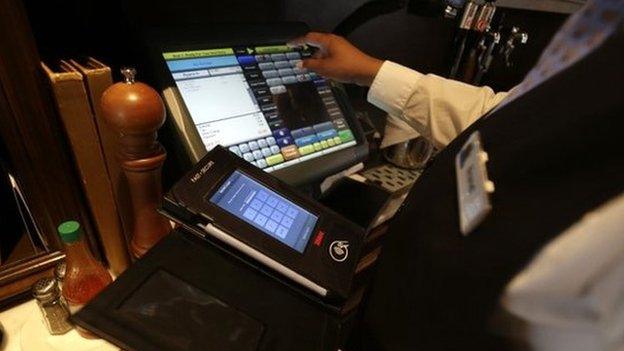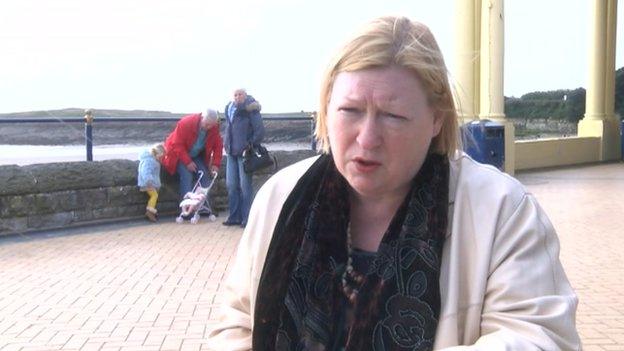Use of zero-hours contracts rises by 6%
- Published

There has been a 6% rise in the use of zero-hours contracts by UK businesses in the last year, data from the Office for National Statistics (ONS) shows.
The ONS said , externalbusinesses used 1.5 million zero-hours contracts to employ staff in January this year, compared with 1.4 million a year earlier.
The data, collected in January, is the first that can be directly compared to a previous point in time, the ONS said.
But it added the rise in contracts was "not statistically significant".
Zero-hours contracts do not guarantee a minimum number of hours of employment and many argue they offer greater flexibility in working patterns.
But the contracts have proved controversial with the Labour party promising to ban them earlier this year if it won the general election.
The ONS said there had also been a rise in the number of people employed on zero-hours contracts.
It estimated that 744,000 people, or 2.4%, of those in employment between April and June 2015, were employed on zero-hours contracts up from 624,000, or 2%, for the same period a year earlier.
That represented a 19% rise year-on-year but the ONS again warned that it was impossible to say how much of the increase was due to greater recognition of the term "zero-hours contracts" rather than a rise in new contracts.
More women
People on zero-hours contracts were more likely to be women, in full-time education or in young or older age groups compared with other people in employment, the ONS said.
Of those working on zero-hours contracts, 54% were women, while 34% were aged 16 to 24 and 6% aged 65 and over.
A further 20% of people on zero-hours contracts were in full-time education.
On average, someone on a zero-hours contract usually works 25 hours a week, with around 40% of them wanting more hours, most from their current job, rather than in a different or additional one, the ONS added.
The survey asked a sample of 5,000 businesses how many people were employed on contracts that do not guarantee a minimum number of hours. More than 2,700 responses to the survey were received - a response rate of 55%.
'No surprise'
Companies with more than 250 employees were more likely to employ some of their workforce using zero-hours contracts, the figures showed.
Jon Ingham of employment analysts Glassdoor said: "It's no great surprise to see the number of people on these contracts is on the up. The fact that many of those surveyed in the ONS study might not know what a zero hours contract is could mean the scope of the problem is far greater than the figures indicate."
He added one in four unemployed adults had "been offered one of these contracts and almost half has turned them down".
"It's safe to say that employees who accept a zero hours contract do not do so as a career choice. For most it's because they have limited options. For some it might be beneficial to have the flexibility to fit around their lifestyle but for others it's a substandard contract which offers little in the way of benefits or security."
But James Sproule, director of policy at the Institute of Directors, said zero-hours contracts formed only a very small proportion of the total workforce despite having drawn significant political attention.
"Zero hours contracts offer businesses and employees an important degree of flexibility. For skilled professionals, a degree of flexibility can boost their earning power, while flexibility also suits students and older people - the main users of zero-hours contracts - who cannot commit to a set number of hours each and every week," he added.
- Published30 April 2014

- Published9 July 2015

- Published1 April 2015

- Published1 April 2015

- Published1 April 2015
